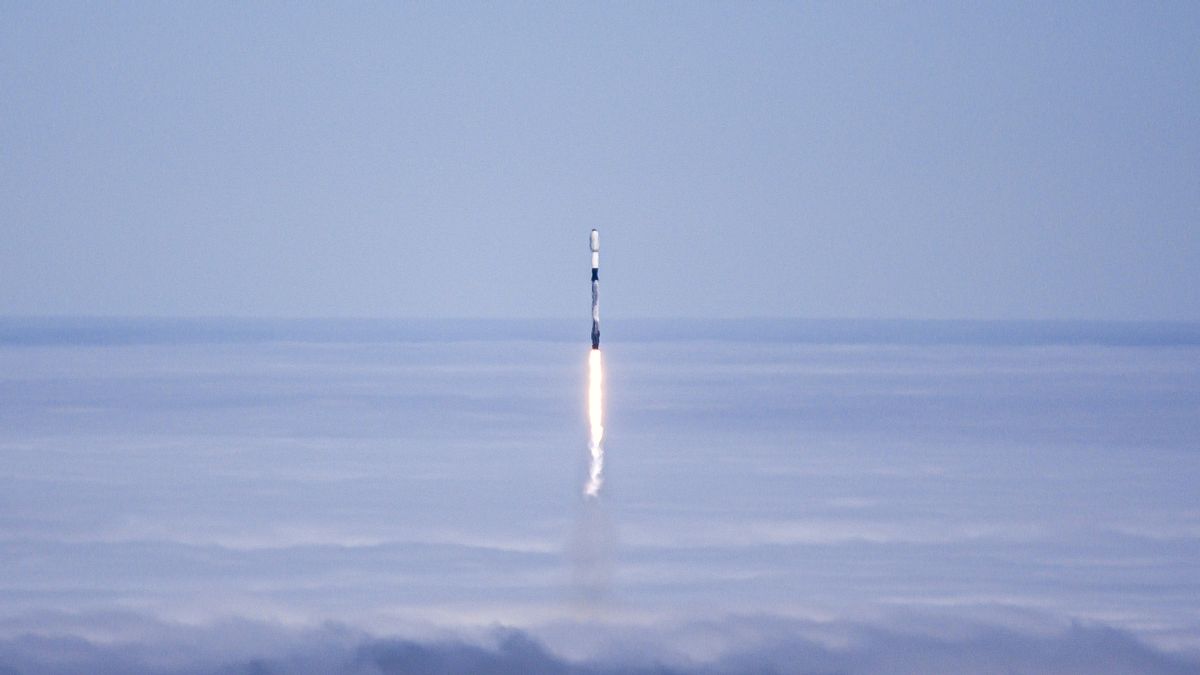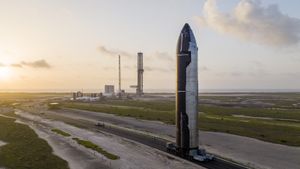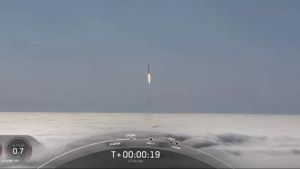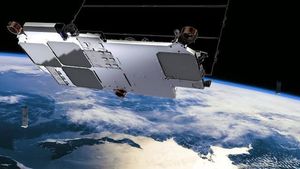JAKARTA - Elon Musk's SpaceX on Friday, July 22, broke its own record for the number of rockets launched in a calendar year. This number surpasses the 31 missions created last year amid a whirlwind campaign to launch its own internet satellite into orbit.
SpaceX's 32nd launch in 2022 on its powerful Falcon 9 rocket comes as companies race to build a constellation of broadband satellites called Starlink, a mostly consumer-driven service with hundreds of thousands of internet users.
"Congratulations to the SpaceX team on a record number of launches!" Musk, SpaceX's chief executive, tweeted after the mission, which deployed 46 Starlink satellites into low-Earth orbit some time ago.
Congrats to SpaceX team on record number of launches! https://t.co/nb8ozrbqZ5
— Elon Musk (@elonmusk) July 22, 2022
The mission took off from the company's California launch site at Vandenberg Space Force Base. SpaceX has so far launched nearly 3,000 Starlink satellites into space. The largest number that was ever done by the private sector in the world so far!
Friday's mission, July 22, puts SpaceX on the path to achieving its goal of making 52 orbital missions by the end of this year. It nearly doubled its annual launch cadence with the reusable Falcon 9, which SpaceX says can be flown up to 15 times.
SpaceX Falcon 9 rocket carrying a payload of 53 Starlink satellites lifts off from Launch Complex 39A.
Most of these missions have been, and are scheduled to be, internal Starlink missions.
SEE ALSO:
The company, founded by Musk in 2002 to make interplanetary travel easier, has in recent months shifted its focus from manufacturing Falcon 9 rockets to managing an already built fleet, investing heavily in infrastructure to upgrade boosters under rapid deadlines.
The company has implemented the same strategy for its fleet of reusable Crew Dragons -a bubblegum- shaped spacecraft that launches aboard Falcon 9 and transports humans into orbit and the International Space Station.
Falcon 9 launches 46 Starlink satellites to orbit pic.twitter.com/qysrekTXfo
— SpaceX (@SpaceX) July 22, 2022
SpaceX has launched its Starlink satellite into space faster than its competitors in the satellite internet race, such as satellite operator OneWeb, in part because of the Falcon 9's rapid reusability and advantages associated with using internal rockets.
OneWeb, which is close to completing the internet constellation with fewer satellites, has launched its satellite on a Russian Soyuz rocket. The company plans to use the Falcon 9 this year after canceling the Soyuz contract due to Russia's invasion of Ukraine.
The English, Chinese, Japanese, Arabic, and French versions are automatically generated by the AI. So there may still be inaccuracies in translating, please always see Indonesian as our main language. (system supported by DigitalSiber.id)


















